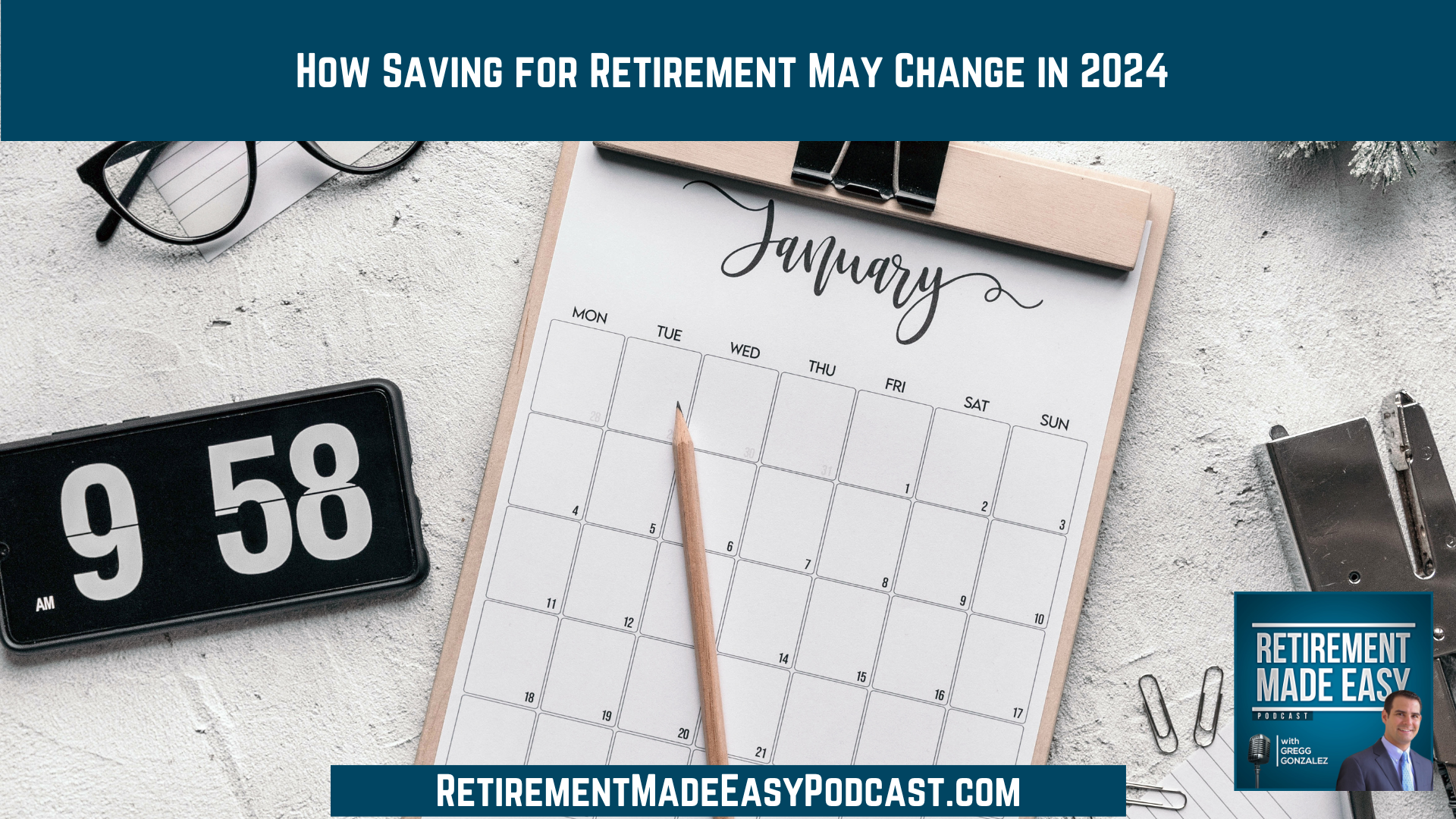
How will things change for those saving for retirement in 2024? What is the estimated cost of living adjustment going to be? Do you think you’re on track for a comfortable retirement? These are the questions I discuss in this episode of the Retirement Made Easy podcast. If you’re planning for your dream retirement, these are things you need to know. Don’t miss it!
You will want to hear this episode if you are interested in…
- [1:37] Check out RetirementMadeEasyPodcast.com
- [2:20] Changes to the catch-up contribution in 2024
- [8:50] How much should you save for retirement?
- [12:45] The estimated cost of living adjustment for 2023
- [14:06] Are you on track for retirement?
Changes to the catch-up contribution in 2024
If you are working and over 50, you’re allowed to make a catch-up contribution. Typically, there are limits to what you can contribute annually to a 401k or 403b retirement plan. If you’re under 50, that limit is $22,500 for 2023. If you’re over 50, you’re allowed to contribute up to $30,000 in 2023.
I found a Vanguard report from 2022 that looked at 1700 retirement plans. 16% of people who were 50 and over were contributing some or all of that catch-up contribution of $7,500. That’s not a large percentage!
According to the new law in the Secure Act 2.0, starting in 2024, those who earn a “high-income,” (i.e. anyone who earns more than $145,000 per year), can only contribute the $7,500 catch-up to a Roth 401k. You don’t get a choice. What’s the problem with that?
Many 401k plans don’t offer a Roth option. Now, those plans will have to change to allow Roth plans. Ed Slott doesn’t believe they’ll be able to make this a reality by 2024. Why did Congress do this? It’s an extra $7,500 this person is having to pay taxes on.
How much should you save for retirement?
If you ask an advisor that follows the Dave Ramsey principles, the rule of thumb is that you should save 15% of your annual household income for retirement. But if you’re behind schedule, you might want to save more than 15%.
The article, “T. Rowe Price Says You Need This Much Saved For Retirement Based on Your Income,” also says you need to save 15% of your income. Fidelity recommends 15%. Are you sensing a theme?
When should someone save more than 15%? Someone with a higher income might be used to a more expensive lifestyle. Social security will also make up a lower percentage of their monthly income.
If someone turns 62 in 2023 and maxed out their earnings over the last 35 years, the most they’ll get is $2,572 per month from Social Security. If someone is hitting full retirement age in 2023, the most they’ll get is $3,627 per month. If you’re turning 70, the most you can get is $4,555 per month.
Let’s say your typical monthly budget is $15,000. That means that Social Security won’t cover your expenses and anything else you need will have to come from personal retirement savings (or a pension, if you have one).
Are you on track for retirement?
How much should you have saved at 65? How much do you need to have saved to retire comfortably? According to the same article I cited earlier,
- If you’re 60, you need to have 9x your income saved for retirement
- If you’re 65, you need to have 11x your income saved for retirement
But if you aren’t going into retirement debt-free, it will change what you need to save for retirement. You need to account for any payments you’ll have to make during retirement.
The truth is that there is no easy answer. Everyone will need to save differently for retirement. The answer will depend on numerous factors—starting with your retirement vision.
Listen to the whole episode to hear the full answer to this question!
Resources & People Mentioned
Connect With Gregg Gonzalez
- Email at: Gregg@RetireSTL.com
- Podcast: https://RetirementMadeEasyPodcast.com
- Website: https://StLouisFinancialAdvisor.com
- Follow Gregg on LinkedIn
- Follow Gregg on Facebook
- Follow Gregg on YouTube



